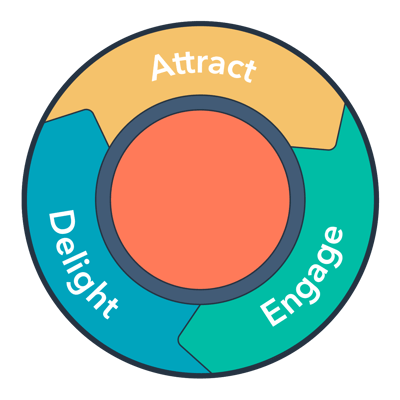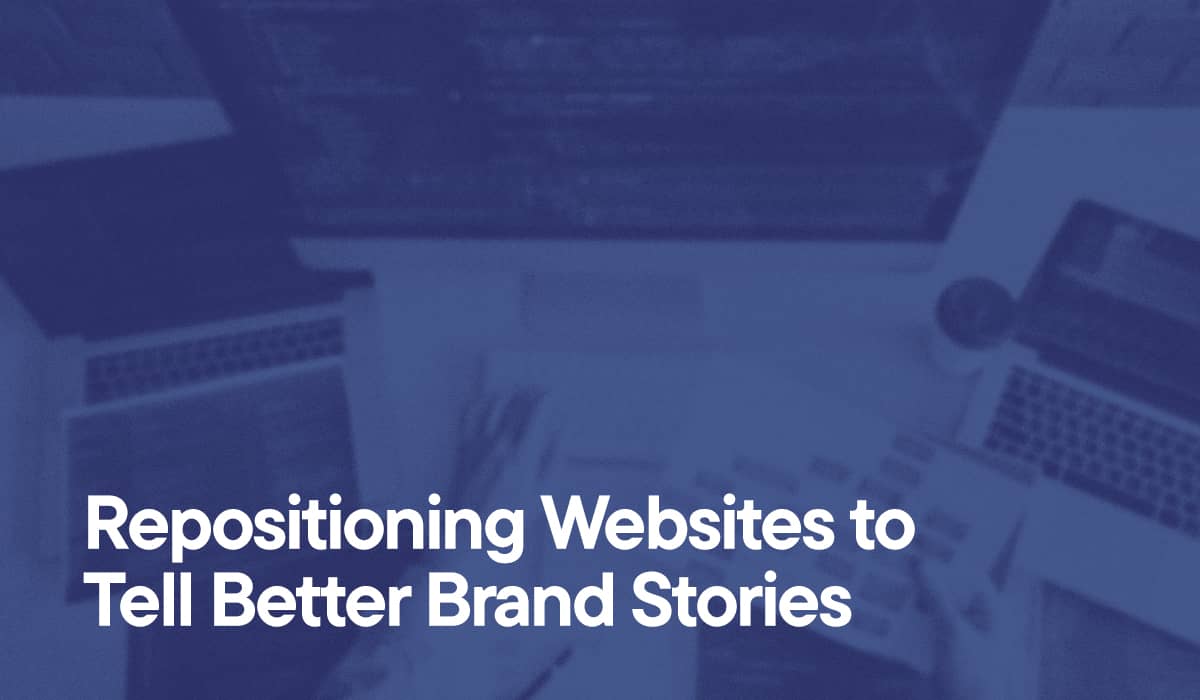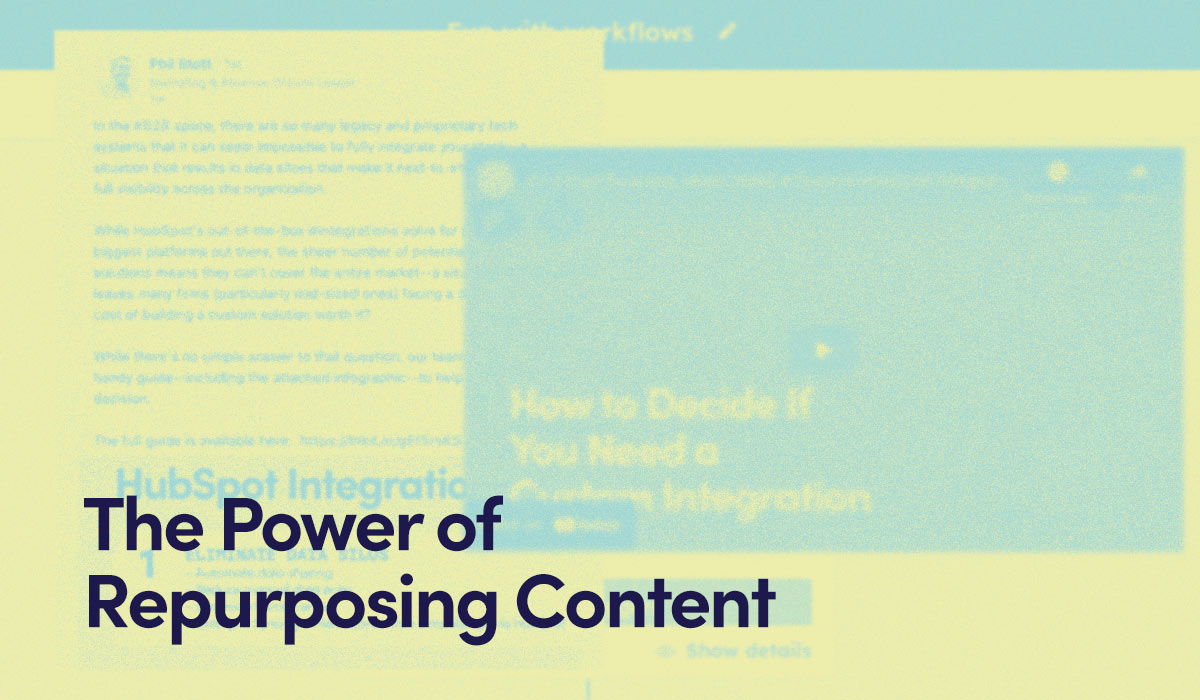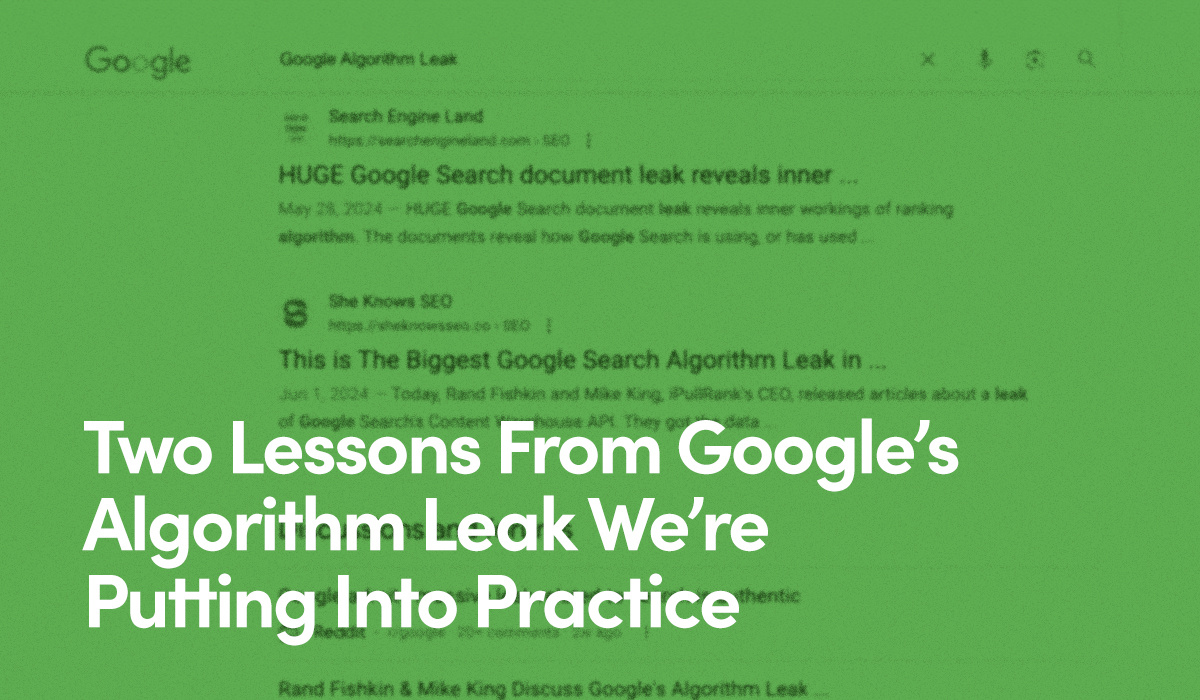Content marketing has been around for decades, but has arguably never been more important or effective than right now. When done right, it's a cost-effective strategy for building brand awareness and generating leads, and it's particularly effective in the B2B space.
As B2B marketing has evolved, it has given businesses the opportunity to build relationships with potential customers long before they even consider purchasing a product or service--with content marketing at the core of that strategy.
If your company hasn’t already adopted content marketing, there are several reasons—backed by data and research—why it should.
What Is Content Marketing?
Content marketing leverages the inbound methodology to provide helpful information to potential customers at the right place and right time. Rather than saturating the market with messaging and hoping the right person sees it, it prioritizes individual buyers, recognizes their fears and hopes, and utilizes empathy to supply answers to their many questions—in the form of blog posts, podcasts, videos, ebooks, and emails.
Content marketing distinguishes itself from traditional methods by educating potential consumers with easily accessible information—when the customers needs it the most. Instead of shouting into a megaphone, this growth strategy capitalizes on the inclination of most people to seek out solutions when they’re trying to solve a problem. Inbound marketing largely relies on the power of search engines to help these potential customers—whether individual consumers or business owners—organically find the answers they’re after. It’s an approach that creates brand awareness and builds trust in your expertise before attempting to make a sale.
According to Think with Google, the search engine’s marketing research hub, 49% of users say they utilize Google to discover or learn about a new product. If your business isn’t creating content that geared toward what users are looking for, then you can be certain others already are.
Any company can benefit from this—and a great deal of firms around the world are. Inbound marketing and sales platform HubSpot issued a report based on a survey of 1,500 marketers around the world and found that 82% of companies are investing in content marketing. A separate survey conducted by online visibility management SaaS platform Semrush notes that 76% of companies have a team of one-to-three content specialists.
Why Does Content Marketing Matter for Businesses?
A 2021 study by digital marketing firm DemandGen indicates 44% of B2B customers consume three to five pieces of content before they’re willing to engage with a sales rep. If this is the case, you are going to miss out on many potential clients until you develop a successful inbound marketing strategy.
So, what exactly are the benefits of B2B content marketing and why might it be right for your business?
5 Benefits of B2B Content Marketing
1. Saves Time & Money
Consider how much it costs to produce and publish a blog post as compared to buying an email list or paying to speak at a trade show.
Typically, email lists cost $195 for every 1,000 contacts, and trade show booths are around $100 to $150 per square foot of floor space. Pay-per-click (PPC) advertising campaigns typically cost between $2 and $4 for a single click on Google. While these campaigns only require you to pay when someone clicks your ad, any traffic they generate stops the second you stop spending—which can be sooner than you think if your ads are targeted too broadly (a situation that can result in a lot of clicks without generating enough conversions).
In contrast, content marketing techniques such as blogging cost anywhere from $100 to $500 for a single blog, and garner significant return on investment (ROI) over time. In fact, businesses that blog garner 126% more monthly leads compared to those that do not, finds a study of 2,300 HubSpot customers. The long-term benefits of leveraging strategic content in an inbound marketing strategy continue well past the publish date—establishing you as an authority in your industry in a cost-effective and more efficient way.
2. Boosts Brand Awareness
If you can create high-quality content for people that is available when they are ready and actively seeking such information, you’ll quickly become a known resource within your industry.
of marketers have met their goals of building brand credibility and trust through content marketing
In fact, 88% of marketers have met their goals of building brand credibility and trust through content marketing, according to the aforementioned Content Marketing Institute report. Such efforts have also been beneficial for building existing client loyalty (78%) and generating leads (72%).
Useful content that reflects your brand attracts users and builds trust, putting you in consideration when they’re prepared to act.
As such, content marketing is well suited for aligning marketing and sales efforts, bringing these two often-siloed teams together to create meaningful content for customers.
Your content serves as a tool sales teams can leverage. As soon as your content begins converting (for example, when someone completes a form embedded in a downloadable offer), you can shape your outreach around what’s succeeding, and respond by offering another useful resource.
3. Generates Quality Leads & Increases Traffic
Any business wants to create quality leads, and that’s precisely what content marketing offers. Historically, you’d take a scattershot approach and saturate consumers with ads, hoping they’d stick. Inbound content marketing not only allows you to build a cost-efficient strategy, but once leads starting pouring in, you’re able to leverage those to create content ideal for a specific group of customers.
By analyzing which type of content target audiences have already engaged with, you can continue to provide more valuable content until they are ready to become a customer.
Again, the data supports this approach: 78% of customers perceive a relationship between themselves and a company utilizing custom content, and 60% are more likely to pursue a product after reading about it, according to research by Canadian software and advisory firm Demand Metric.
For these reasons, it’s no surprise content marketing generates three times as many leads per dollar compared to traditional marketing—at 62% less cost, finds the project management software provider.
This is largely thanks to the fact inbound marketing engages prospects the way they prefer: 70 percent of internet users would rather learn about companies through articles rather than advertisements. In 2019, 25.8% of people actually blocked ads on their connected devices.
By delivering tailored, non-interruptive content, you let your prospects come to you to solve their specific problems and pain points. Through trust and authority, you nurture quality leads and drive traffic in a way typical outbound methods can’t compete with.
Transform Your Marketing With Strategic Content
Ready to Convert More Leads Into Loyal Customers?
Discover Our Content Engineering Expertise arrow_forward
4. Grows Sustainably Over Time
While traditional marketing methods tend to run for a brief duration, B2B inbound marketing means creating content that is available across multiple channels, 24/7.
Consider again PPC campaigns that run for $2 to $4 per click on Google Ads. While they’re a great option if you’re looking to make an immediate impact on sales—say for a time-limited event or sale—it ends the moment you stop paying for them.
In contrast, the inbound content you create is available long after it’s posted, and every click it generates is free—meaning it continues to enhance the value of your brand well into the future, with no additional spend.
Consider this: 67% percent of consumers begin their buyer’s journey by searching a product on the web, and 75% never scroll past the first page of search results.
of consumers begin their buyer’s journey by searching a product on the web
Never scroll past the first page of search results
67% percent of consumers begin their buyer’s journey by searching a product on the web, and 75% never scroll past the first page of search results.
To determine where sites rank on SERPs, Google’s algorithm analyzes content, site design, and backlinking to determine a brand’s relevance and authority on a particular subject matter.
This is precisely why isolated PPC campaigns and other traditional outbound marketing efforts fail to deliver the same long-term results as inbound marketing: They do not demonstrate your brand’s authority within your industry; they merely garner attention for a finite amount of time—which, as we mentioned, does not always produce quality leads.
Ample time is required for your content to be indexed by Google and to take root digitally—but once it does, it will continue to grow and grow and expand your reach.
But to find success, you have to work at it. And that means linking valuable content to previous work.
Search engines will steadily tend to serve your content if you plant the proper seeds in the proper places—creating sustainable growth.
5. Fosters Trust & Establishes You as an Expert
Demonstrating to potential clients and customers that you’re not only knowledgeable about your particular field, but willing to provide helpful content, goes a long way in establishing your brand as a trustworthy authority.
People tend to come back to those who have already helped them. Each piece of content they come across is an opportunity for you to attract, engage, and delight somebody who will become increasingly more likely to reach out to you when they have a problem they can’t fix on their own.
Eighty-one percent of consumers reported trust as a deciding factor in purchasing decisions, yet only 34% trust the brands they use, states research study “A Moment for Trust” by British media company Clear Channel UK and multinational corporation JCDecaux UK.
This creates immense opportunity to nurture strong B2B relationships—a central component of inbound marketing.
Nobody enjoys feeling like a number or being marketed to, which is often the case with outbound efforts that don’t provide prospects anything valuable. Ninety-one percent of respondents to a 2016 HubSpot research study reported they felt ads more intrusive than in previous years, and 79% believed they were being tracked by retargeted ads. This made them more likely to block ads, whether because they considered these annoying/intrusive (64%), disruptive (54%), or created cause for security concerns (39%).
On the other hand, inbound marketing grows customer relationships every step of the way, fostering trust through reliable, useful content.
Starting a Content Marketing Strategy
You’re not going to find an inbound content marketing strategy that works well for all businesses, but there are several features that effective strategies have in common.
In simple terms, your strategy should be built around attracting, engaging, and delighting customers in organic ways. This is well captured by HubSpot’s flywheel, which contrasts with more linear models, such as traditional conversion funnels. The flywheel connotes the ongoing and dynamic nature of inbound marketing. As with any relationship, you always need to be nurturing and attending to it.
Let’s look at what each of these flywheel phases represent.
Attract
To attract consumers or leads, they need to be able to access your content, and that takes a solid SEO strategy, with carefully selected words and phrases associated with your business that are likely to be searched. The goal is to get as much of your content as possible to appear on the first page of search engines, and by producing content about those specific and highly searched topics, people will naturally find you.
You’ll want to include attention-grabbing visuals that display well on various social media platforms and devices, and make it easy for people to access your content (the fewer clicks, the better).
Engage
You need to be confident the content you plan on creating will appeal to the exact type of person who will become a customer. Content needs to be valuable and delivered in appealing ways. It should not only answer potential customers’ questions, but present information in a way that gets them to click.
Think seriously about the specific questions people will ask about your industry or products. Keep in mind that you don’t have to do this alone. There are keyword tools, such as Semrush, which help you use analytics to identify heavily searched terms relevant to your business.
Delight
Regularly find ways to help and support leads or customers, adding value at every interaction. Without being nagging, send follow-up emails with relevant content offerings. Create content that entertains and educates. Utilize well-timed feedback surveys to gather more information about how you can better serve your customers. Deliver content that really wows them.
You should have valuable content for customers along every step of their buyer’s journey that attracts, engages, and delights.
When you develop a content plan, you’ll want to consider including case studies, pillar pages, calls-to-action (CTAs), webinars, podcasts, blog posts, white papers, and ebooks. You don’t need to utilize all of these, but employing a combination will ensure you captivate a wider range of leads’ communication preferences.
Admittedly, creating a content marketing strategy can be daunting, which is why many businesses enlist an inbound marketing agency to help them develop and execute it. Some agencies will even teach you how to do it yourself once they’ve set you up with the proper tools.
Just Answer the Question
At the end of the day, B2B inbound marketing doesn’t have to be your only growth strategy. (There is still a place for outbound marketing.) However, if your company is hoping to expand its reach, increase brand awareness, identify high-quality leads, and most importantly, improve the lives of potential clients and customers, then inbound marketing should play a prominent role in your business strategy.
There’s an extensive pool of people out there struggling with questions. Will your company be the one to answer them?




